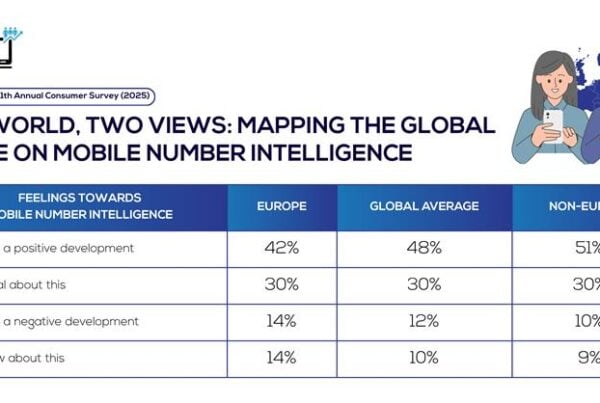TRAI’s new consultation on foreign-issued SIMs marks a pivotal moment for IoT, A2P, and roaming players. From national security to lawful interception, the issues on the table go far beyond India. Could this spark a global wave of SIM and M2M regulation? MEF Programme Lead for Connectivity & Wholesale Isabelle Paradis explains why for MEF members, the time to engage and shape the outcome is now.
The international telecom community is watching closely as the Telecom Regulatory Authority of India (TRAI) opens a public consultation on the use of foreign-issued SIM cards in India. The move signals a growing concern among regulators about cross-border communication practices—and could set a precedent for policy responses elsewhere.

The consultation, launched in early July 2025, seeks views on establishing a regulatory framework for the use of foreign SIMs, particularly those used for international roaming and machine-to-machine (M2M) communication. It touches on complex issues ranging from national security and revenue assurance to fraud prevention and lawful interception.
So why now? And what does this mean for international service providers and the broader MEF community?
Why TRAI Is Acting
At the core of TRAI’s concerns is the increasing use of foreign SIMs by Indian citizens and businesses—particularly in IoT deployments and messaging services. According to TRAI, this trend creates grey zones in regulatory oversight, potentially enabling fraud, revenue leakage, and national security vulnerabilities.
It’s also a response to the growing tension between traditional regulatory jurisdictions and today’s global, cloud-native communications ecosystem. In a world where an enterprise in Mumbai can deploy IoT devices managed from Singapore with SIMs issued in the Netherlands and controlled via APIs hosted in California, the question arises: who governs what?
Impact on the Industry: Complexity Meets Compliance
If TRAI’s proposals move toward strict regulation or licensing of foreign SIM usage, the impact on international service providers could be significant:
- Greater friction for global IoT rollouts: Enterprises and M2M providers may face new compliance burdens when deploying in India.
- Potential disruption to OTT and A2P traffic: Service providers using foreign SIMs for messaging into India could be required to register, comply with traceability rules, or even localize infrastructure.
- Shift in roaming dynamics: If India restricts or tightly controls inbound roaming SIMs, this could impact roaming partnerships and business models reliant on inbound traffic.
The Internet of Things wholesale market demands change, and you can be part of the revolution. MEF invites stakeholders to join the conversation and take action. To this effect a dedicated working group was created within MEF to help drive these initiatives forward.”
For MEF members operating in wholesale messaging, A2P, roaming, and IoT connectivity, this creates a new layer of operational and legal complexity.
Could Other Regulators Follow?
Yes—and some already are.
We’re seeing a broader regulatory pivot toward digital sovereignty and traffic visibility. From the European Union’s eSIM regulations to recent discussions in Brazil, Kenya, and Indonesia around OTT and M2M traffic control, TRAI’s move reflects a wider pattern.
In fact, MEF has already observed interest from several regulators in examining how foreign-issued resources (like SIMs, virtual numbers, or cloud-hosted infrastructure) interact with local laws and policies.
What begins in India may soon echo globally.
What This Means for MEF Members
For MEF members, the proposed framework offers both challenges and opportunities. While it introduces new administrative steps, it also brings long-awaited clarity to an area that has often operated in a grey zone. Understanding the practical implications of TRAI’s consultation is essential for any organization involved in manufacturing, exporting, or enabling IoT connectivity in India.
Here are the key takeaways for members to consider:
- Clarity and compliance: Members deploying IoT devices for export will benefit from better-defined rules—such as who can issue foreign SIMs, under what conditions, and required authorizations.
- Administrative processes: Businesses may need to apply for NOCs, adhere to activation/deactivation windows, or demonstrate export status during testing and prototyping.
- No new consumer impact: Regular roaming or tourism services remain unchanged, as the consultation is strictly export/device-focused.
The Role of MEF: Advocacy, Collaboration, and Clarity
This is a moment where industry engagement matters.
As a trusted neutral forum, MEF is uniquely positioned to help bridge the gap between regulators and industry players. Here’s how:
- Facilitating dialogue: MEF can convene consultations and working groups with TRAI and other regulators to share industry insights and promote balanced outcomes.
- Promoting best practices: By publishing frameworks on transparency, fraud prevention, and lawful access in A2P, roaming, and IoT, MEF can demonstrate how industry can self-regulate effectively.
- Enabling compliance at scale: MEF can work with members to identify technical solutions—such as SIM registries, number verification APIs, and lawful access interfaces—that align with regulatory goals without crippling innovation.
A Call to Action
TRAI’s move is a reminder that global communications—whether via SIM, API, or cloud—cannot ignore national concerns. But regulation doesn’t need to mean fragmentation.
With the right level of industry coordination and regulatory openness, we can co-create models that uphold security and transparency while preserving the benefits of international interoperability.
For MEF members, now is the time to:
- Understand the implications of the consultation
- Engage in the dialogue
- Work with MEF to shape a response that balances innovation with compliance
The future of mobility depends on it.





